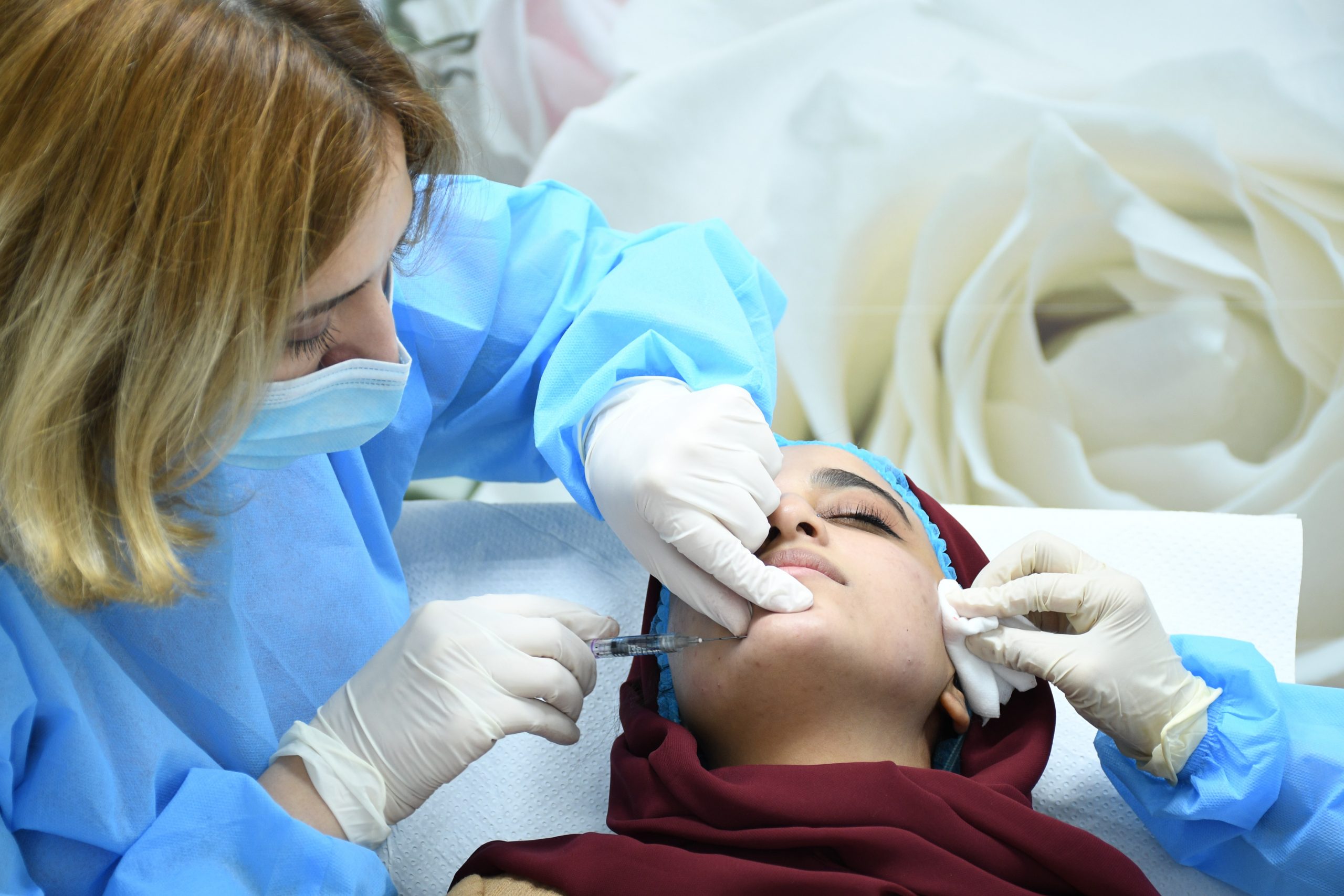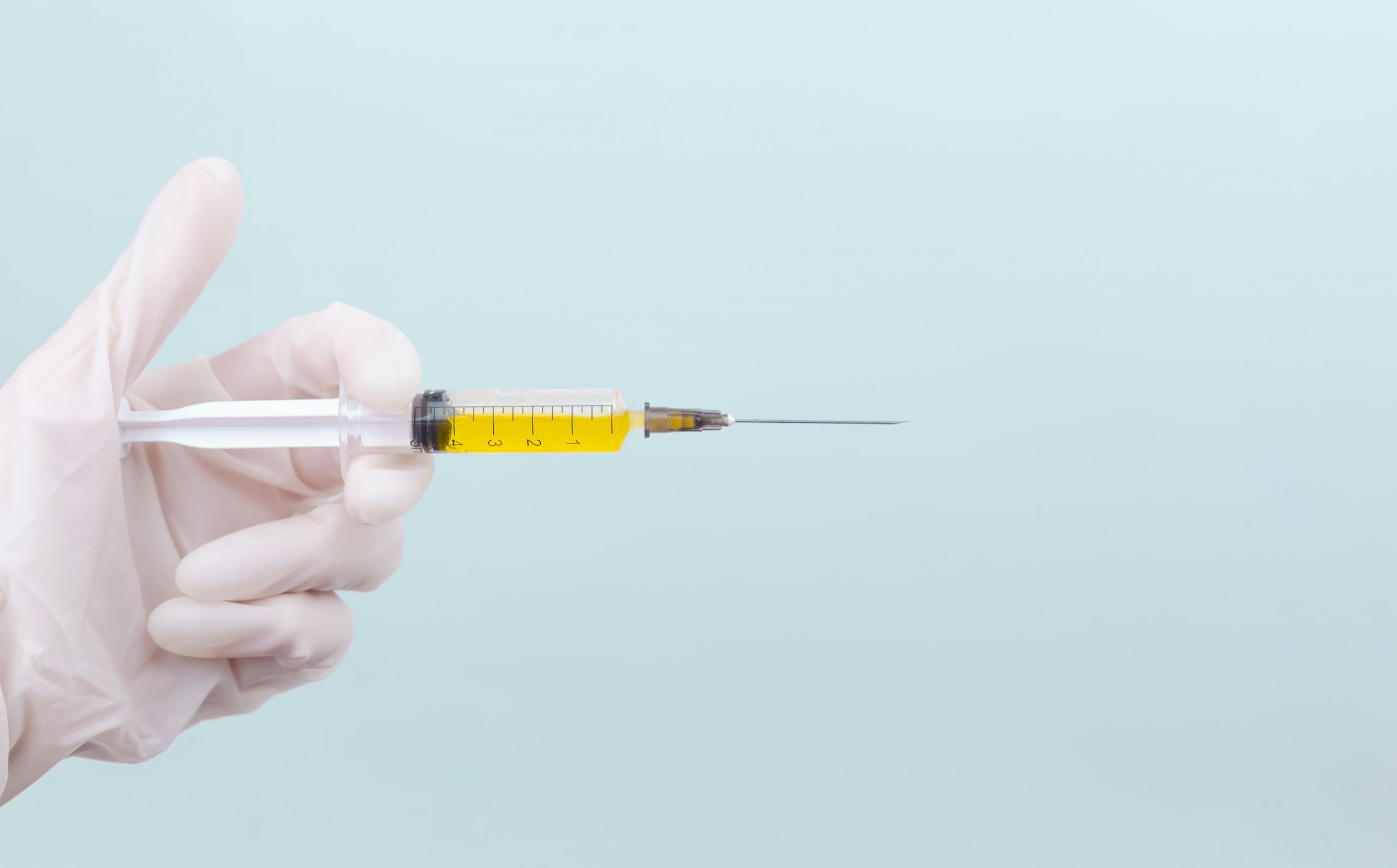Naturally, the idea of any object piercing our skin may cause some unease. While slight discomfort around needles is typical, some people may experience an increased sense of terror or anxiety at the sight or thought of a needle. Likewise, people may have intense visceral reactions to injections or other procedures involving needles. Sometimes the fear is intense enough to be classed as a phobia and can significantly impact people’s lives.
Unfortunately, a fear of needles may lead many to forego the critical care and dermatological treatments they need, not to mention missing out on what cosmetic procedures have to offer. Luckily, dermatologists and patients can work together to reduce the fear of needles.
The Use of Needles in Dermatology
Needles are commonplace in dermatology and are used in several cosmetic procedures such as fillers, acne treatments, and hair and scalp treatments.
Dermatologists frequently use needles to inject fillers, such as hyaluronic acid, into the skin to aid with fine lines and wrinkles, plump lips, and lift drooping or sagging skin. Similarly, a dermatologist may also use a needle to inject corticosteroids into cysts, nodules, and pustules to treat and reduce pain from acute acne breakouts rapidly.
Injections can also help people with alopecia or chronic hair loss. To treat alopecia, a dermatologist can extract platelets and plasma from a small sample of the patient’s blood and inject them into the hair loss site to stimulate growth. Likewise, a dermatologist may inject corticosteroids into the scalp every 4 to 6 weeks to mitigate hair loss from immune attacks on hair follicles.
The Fear of Needles
Trypanophobia, the technical name for the fear of needles, is an extreme aversion to or fear of procedures that require the use of injections or hypodermic needles. Children, by far, experience this fear the most, as they are unfamiliar with the sensation of a needle and may struggle to comprehend the purpose of an injection fully.
In some cases, a fear of needles may carry over into adulthood and may even develop during adulthood due to several factors like trauma or anxiety.
It isn’t easy to trace the exact origins of trypanophobia, but studies propose it is often linked to the following experiences:
- Negative experiences or trauma related to needles and injections
- A family history of phobias or childhood phobias
- Anxiety, especially surrounding medical procedures
- Hearing negative information or about negative experiences with needles
- Changes in brain chemistry
- Hypersensitive or inhibitive temperament
Common adverse reactions to needles include or are caused by:
- Vasovagal response. A vasovagal response is the most common cause of fainting and severe dizziness. Many people experience this type of reaction after a needle prick and may subsequently avoid needles for fear it may happen again.
- Medical anxiety or hypochondria. For some, fear of needles may be unrelated to pain from the needle itself but rather a psychosomatic response from a procedure involving a needle. This means that the idea of injection is what causes the patient’s distress. Patients often have a visceral bodily response to this reaction and may cry or faint during an injection.
- Pain sensitivity. Naturally, people with a lower pain threshold are more likely to fear and avoid needles. Hypersensitivity to pain tends to be genetic.
Your Safety & the Steps We Take to Keep You Safe
Before we start, we will ask you about any past procedures and how you’ve responded to them so we can determine the best approach to help you feel safe and relaxed during a procedure.
Depending on your preference, we can discuss the steps of the procedure at length with you. Some patients find knowing what will happen eases their anxiety, while others prefer not to know, lest it trigger any latent or unperceived fears. We will also tell you what to expect during and after the procedure to help you feel at ease and ready for any ordinary side effects that may occur.
Know that you are free to stop the procedure at any point. If you feel uncomfortable, we will not press you to go through with the procedure. Our goal is to move at a pace that is comfortable for you.
Lastly, remember that we are licensed professionals with years of experience behind us and that risks associated with dermatological procedures are low.

How to Get Over the Fear of Needles
Because people with a fear of needles avoid procedures that involve them, it’s difficult for professionals to provide them with the information needed to help quell their fears.
If you’re ready to start tackling your fear of needles, talking with a therapist can help. Depending on your circumstance, a therapist may recommend any of the following approaches to conquer your fear of needles.
Cognitive-behavioral therapy. You and a therapist will discuss your fear of needles to attempt to get to the root cause and develop coping methods. Sometimes just talking about your fears can help ease your worries. Likewise, hearing new information and different perspectives can help you feel more comfortable around needles.
Exposure therapy. Exposure therapy involves facing the beast and having a therapist expose you to needles or things closely related to them. This method might sound daunting, but your therapist will start small and proceed according to your pace.
Medication. If psychotherapy methods aren’t enough, you may benefit from anti-anxiety medications and sedatives to help you through a procedure.

